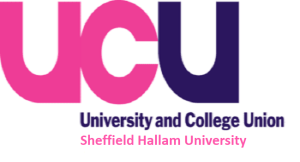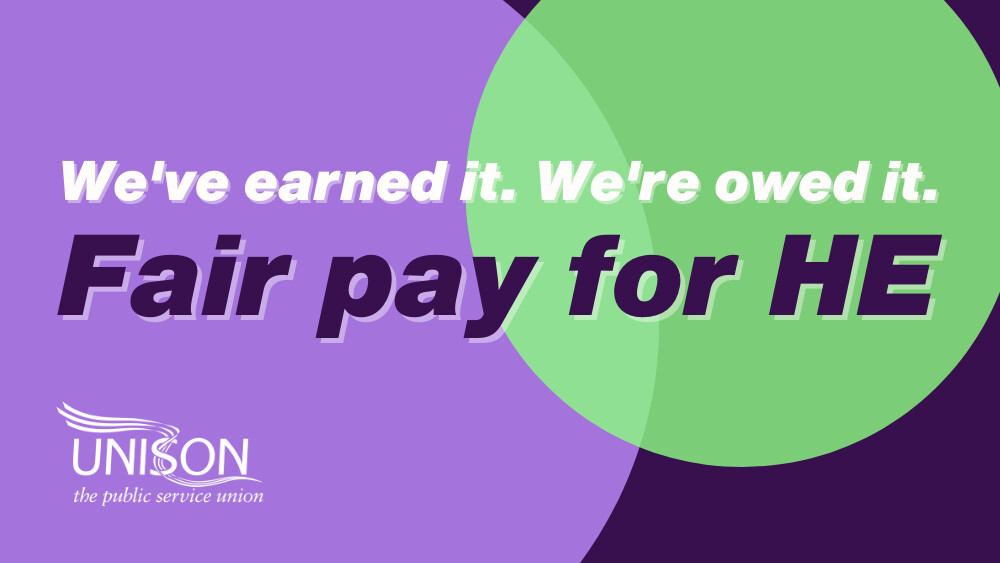Category Archives: Campaigns
UNISON – Now We Rise: Join Us in Sheffield on December 9th for a Global Day of Action!
Gallery

This gallery contains 2 photos.
FAQs 2023/24 Pay Ballot
What is industrial action?
Industrial action can be strike action (which is any concerted stoppage of work) or action short of strike action such as ‘go-slows’ or ‘working to rule’.
Is it against the law to strike?
Although there is no positive legal right to strike in the UK, strike action organised by a trade union is legal provided some tough conditions are met.
For example:
- The union must have conducted a lawful ballot of all of the members it believes will be called upon to take part.
- The action must be over a trade dispute between workers and their employer over an issue like terms or conditions of employment and as defined in s.244 of the Trade Union and Labour Relations (Consolidation) Act 1992.
- The general secretary, or someone else authorised by the union’s rules, must authorise any industrial action.
- The person named on the ballot paper must issue a call for action before industrial action can take place.
- There are very strict rules about the ballot and the notice that must be given to the employer about the action.
At what point do we go on strike?
Industrial action is a last resort. UNISON always tries to negotiate and bargain for its members before pursuing industrial action.
What are picket lines, and how should we organise them?
A picket line is a group of striking workers located at or near their place of work who meet at the workplace to increase awareness and support for their cause. Picketing members may tell other workers about the dispute between them and their employer.
During a picket line striking members are allowed to persuade workers, including agency workers and delivery people, to stop interacting with the business. This must be done peacefully, as criminal law applies to picket lines.
Striking members mustn’t use threatening behaviour or force to prevent others from attending work, cause criminal damage, or prevent police officers from carrying out their duties.
The maximum appropriate number of striking members on a picket line, according to the relevant code of practice, is 6. However, this is not enforceable in law.
The police in Great Britain can use special powers, such as obtaining an order prohibiting the picket, if the picket contains more than 20 people and they believe it may result in serious disruption to the life of the community.
Can I be dismissed for taking part in industrial action?
It is automatically unfair to dismiss someone who has taken part in any lawful industrial action within 12 weeks of the first day of action.
Can an employer deduct money from your wages for taking part in industrial action?
Yes. An employer can deduct up to one fifth of weekly pay for a day of strike action. In many HEls trade unions have an agreement that only 1/365 of pay will be deducted per day of strike action, and for those on academic contracts this should always be the case.
Industrial action is a last resort. UNISON always tries to negotiate and bargain for its members before pursuing industrial action.
What are picket lines, and how should we organise them?
A picket line is a group of striking workers located at or near their place of work who meet at the workplace to increase awareness and support for their cause. Picketing members may tell other workers about the dispute between them and their employer.
During a picket line striking members are allowed to persuade workers, including agency workers and delivery people, to stop interacting with the business. This must be done peacefully, as criminal law applies to picket lines.
Striking members mustn’t use threatening behaviour or force to prevent others from attending work, cause criminal damage, or prevent police officers from carrying out their duties.
The maximum appropriate number of striking members on a picket line, according to the relevant code of practice, is 6. However, this is not enforceable in law.
The police in Great Britain can use special powers, such as obtaining an order prohibiting the picket, if the picket contains more than 20 people and they believe it may result in serious disruption to the life of the community.
Can I be dismissed for taking part in industrial action?
It is automatically unfair to dismiss someone who has taken part in any lawful industrial action within 12 weeks of the first day of action.
Can an employer deduct money from your wages for taking part in industrial action?
Yes. An employer can deduct up to one fifth of weekly pay for a day of strike action. In many HEls trade unions have an agreement that only 1/365 of pay will be deducted per day of strike action, and for those on academic contracts this should always be the case.
What is this HE Pay ballot about?
This ballot is for national strike action over the employers’ imposed pay uplift of 5-8% for higher education staff, depending on spinal column point. This uplift was for the year commencing 1 August 2023 with a portion added to annual salaries six months early and backdated to 1 February 2023. This early payment was imposed in the March 2023 payroll in many, but not all, HEls, with the remainder imposed in August 2023.
The higher education service group executive agreed to re-ballot members at all higher education institutions previously balloted in 2023 where we achieved at least a 34% turnout and a clear majority in favour of action, and gave branches an opportunity to opt out.
Who makes the decisions regarding industrial action?
UNISON is a member-led union and decisions are made by members. In any vote on whether or not to take industrial action, each member receives a postal ballot, which they are asked to complete and return within a designated period.
If more than 50% of the members at your university did vote, and if a majority of those who returned their ballot papers voted in favour of action, your union can call members out on strike.
The service group executive will decide whether to call days of coordinated strike action in England, or whether to delegate the decision to branch committees on how many days local strike action to take and when, in consultation with members. Proposals will be referred to regional and national level for authorisation. In Scotland the Regional HE Committee will be asked to make decisions on dates for action, in conjunction with branches. The elected members of the Industrial Action Committee will make the final decision.
When are the next strike days?
Days of strike action will be scheduled after the ballot has closed, from 18 March 2024 onwards, up to 18 August.
Will strike pay be available for any days I am on strike?
Yes. UNISON has agreed to pay members taking strike action up to £50 per day in strike pay (or full take home pay if this is less) from day one of any properly authorised strike action. Your local branch will administer this by passing on the names of members and details of the amount of money that has been deducted by your employer to UNISON. It will take a few weeks for the money to be paid. If you take strike action your employer is entitled to deduct up to 115th of your weekly pay or equivalent, and if it is less than £50 this is the amount that would be paid to you as strike pay.
What do I have to do to get strike pay?
You will need to show proof that you were on strike (in the event of a strike we will send precise instructions regarding what we need) and a copy of your wage slip to show what deduction was taken from your pay.
Is there any other financial help available?
If your employer deducts more than £50 from your pay for a day of strike action and this causes you financial difficulty you will be able to apply to your branch’s Hardship Fund. We will share details of this in the event of strike action taking place.
I’m on benefits and they will be affected if I take strike action. Is there anything I can do about that?
Talk to your branch to explain how you will be affected. You may be granted an exemption from taking strike action if you will lose benefits by doing so.
Am I breaking my contract by taking strike action?
All industrial action is a breach of your contract of employment. Because UNISON is carrying out a statutory ballot and any action will be formally called in accordance with legislation, the law protects workers automatically from dismissal while taking part in lawful industrial action at any time within 12 weeks of the start of the action and, depending on the circumstances, dismissal
may also be unfair if it takes place later. As far as we are aware, this kind of dismissal has never happened in higher education.
Does taking strike action break my continuous service?
No. The period of time that you are on strike does not count towards your continuous service, but it does not break it either.
Do I have to tell my employer that I am taking action?
It is often the case that management will send out emails/letters demanding that you declare in advance whether you will be taking industrial action. This is intended to minimise the effect of the action and can have the effect of misleading and intimidating members. You are under no obligation to inform your employer I manager in advance as to whether you will be taking part in strike action. UNISON will have provided your employer with all the information about the action required by law. Once you are back at work following the strike action, you should respond truthfully to any query from your employer as to whether you have taken or are taking industrial action. You should not, however, respond to any such query while you are on strike.
What if I am working from home on the day of the strike?
Going on strike means you do not undertake any work on a specific day, and that includes those members that are working from home.
Already booked annual leave during the strike dates; what should you do?
Where strike action begins during a period in which an employee is on annual leave, then in the absence of evidence to the contrary, he or she should be deemed to be on leave and not on strike. If your annual leave is essential, you should take it as planned. If your leave is not essential, you may wish to move it so that you can participate in industrial action alongside your colleagues.
What if I am sick during the strike?
Employees who are absent due to sickness before industrial action starts should be assumed to be on sick leave, providing that any necessary certification is produced. If the employee reports as sick on the day the action starts, the university will need to make its own judgment, taking into account any evidence that the employee can provide, whether they should be regarded as on sick leave or on strike.
I am not a UNISON member; can I take part in industrial action?
We would like everyone to respect the picket lines and not go into work. Non union members who take part in legal, official industrial action have the same rights as UNISON members not to be dismissed as a result of taking action.
However, our strong recommendation is that you join UNISON so that you have the protection of a trade union before you take part in industrial action. If you have provided the details requested on the UNISON member application form, your membership will be active from the date of application. This means that you are able to take part in any strike action while awaiting your membership number.
How late can someone join the union and still take part in strike action? Individuals can join UNISON at any point up to and including on the picket line on the day of action and lawfully participate in the strike.
If we take industrial action, what am I expected to do?
Your union only organises strike action when every other avenue has been exhausted and when the democratic decision-making bodies of the union believe there is no other way to make employers change their position. It is a very serious sanction and that is why we ask that every member observes the strike. Every member who does not observe the strike is directly undermining the union’s bargaining power and making it harder for the union to protect all of its members.
Every member who does strike is helping to advance the interests of all staff throughout the HE sector. When a strike takes place, we ask members not to do any work for all of the days specified by the union. This includes, for instance, time before 9am and after 5pm. It also means not doing any preparation for work that you are due to do when you return to work after you strike.
On strike days, the best possible thing you can do is contact your UNISON branch and volunteer to help at the picket lines – and ask colleagues in your department to join you. Picketing is a vital activity intended to demonstrate to the employer the scale of the disruption that the union is able to cause and get support for your action from students, other colleagues and the public.
Some branches also organise a rally at some point during the day, or perhaps a march. Find out whether there is a rota to sign up to, or whether someone will meet you at the picket line to show you what to do. Remember, if you are on strike, you must not go into any buildings or onto any land owned by your employer, so you won’t be able to use any of the facilities.
Do I have to take strike action if I am pregnant?
No, if you are pregnant and have notified your employer of the expected date of birth you are exempted from strike action. If it is your intention to be away from work on maternity leave for the whole potential period of any strike mandate we achieve (6 months from the date the ballot closes) you should not vote in the ballot and should ask you branch to arrange for you to be excluded from the figures.
I have other questions that have not been covered by these FAQs; what should I do?
Visit UNISON’s web page on industrial action here: https://www.unison.org.uk/get-help/knowledge/disputes grievances/industrial-action/ If you are unable to find the answer to your question please contact your local UNISON branch and they will be able to advise you on a range of issues.
I have a disability. How will the picket lines be made accessible for me?
Contact your branch and explain your access needs. They will discuss with you what can be done to make the picket lines and other action accessible for you.
Will taking industrial action affect my pension?
Absence on strike for a day or more will not count as pensionable service. This means you will not make a contribution towards your pension for the time you are on strike.
In some strikes, particularly short ones, employers may not withhold superannuation contributions, so taking strike action has not generally affected pensions, though it is possible that it could.
If your employer decides to deduct pay for the day of action, the employers do not have to pay pension contributions during that period, and you will not have paid your portion of contribution for that day.
The impact on your final pension would be extremely small but you might want to consider replacing the lost contribution.
It is possible, with your employer’s agreement, to pay a sum equal to the employee and employer contribution and receive full credit for the day’s absence and continue to have full cover.
Any member wishing to do this must inform their employer in writing before the absence takes place.
It is possible that members of the Universities Superannuation Scheme (USS) are not covered by the death benefit provisions under that scheme on any days on which they take strike action.
Questions about taking strike action due to a trade dispute for members of the LGPS. You will also need to check any additional information from your employer.
How will strike action affect my pension benefits?
You do not earn pension for the days you are on strike. Absence from work for strike action for one or more complete day means that those days do not count in any way for pension purposes.
How can I reinstate the pension I have lost due to strike action?
You can elect to purchase the amount of pension lost by paying Additional Pension Contributions (APC’s). The cost of purchasing the amount of lost pension for the period of absence would be fully met by you; your employer does not make a contribution to the APC. To pay APCs the member must have at least one year to go before retirement.
If you have membership of the LGPS before 1 April 2014 you will have built up benefits in the final salary scheme. If you choose to pay for the lost pension in the scheme the amount you pay will go towards covering the protections associated with the pre-1 April 2014 membership.
What effect will a strike absence have on my pension benefits if I don’t make up the shortfall?
The amount of pension you lose is calculated as the appropriate fraction of your assumed pensionable pay for that period of absence (i.e., 1149th of your assumed pensionable pay for that day if you were in the main section of the scheme or 1198th if you were in the 50/50 section).
Will UNISON exempt members from strike action with less than one year before retirement?
Previously UNISON has exempted members in the last year of service from strike action because of the possible effect of reduced final pay on final salary benefits earned up to April 2014 in England and Wales and April 2015 in Scotland and Northern Ireland. In practice, as one of the two immediately preceding years’ salary can be used for final salary purposes, there is likely to be minimal effect for just a few days of absence on strike.
If you require any further information or clarification, please contact your LGPS pension scheme directly.
Visa Fee Increases: the impact on staff and students at SHU
On the 13th of July, the government proposed a range of hikes to visa fees and surcharges as a way to fund public sector pay rises. While everyone can agree that the public sector needs pay rises, the planned increases to migrant fees are a political choice to pit workers against each other.
The IPPR spelled out several progressive tax options available to the government to fund public sector pay rises without impacting inflation that do not involve robbing one group to pay another. Moreover, many migrants are public sector workers themselves, who should not have to pay higher visa fees to support their own pay increase.
On the 6th of September, SHU UNISON passed a motion ‘Stop Planned Visa Fee Increases’ which called upon Unison Higher Education to urge the government to abandon these plans to raise the fees. However, the situation is changing rapidly.
On the 15th of September, the House of Commons published a research briefing which explains that visas and related fees have risen significantly above inflation and above processing costs. Then, on the 18th of September, the Home Office officially announced 15-35% rises to visa fees, which will take effect on the 4th of October. They also announced a 66% rise to the Immigration Health Surcharge (a fee which migrants pay upfront for each year of their visa to fund the NHS in addition to their taxes), which is meant to take place later this year.
How this will affect students and staff at SHU
Firstly, any migrant staff or students will be directly affected by the cost of their visa renewals. Depending on their visa, this is likely to be an increase between £1,000 and £2,000 depending on the route. For example, a two-year graduate route which costs the Home Office £103 to administer, will go from £1,963 to £2,894; three-year skilled worker visas which cost the Home Office £151 will go from £2,591 to £3,932. These unexpected rises during a cost of living crisis will be felt by migrants and families, and are likely to force those with fast approaching visa renewals to make some hard decisions about their finances.
There are implications for university finances which have potential knock-on effects for all university staff and students, as International Student Fees are projected to make up 25% of HE provider total income. As fees become prohibitive to potential students, university budgets may need to tighten accordingly. Additionally, there has been a 19% increase in the cost to the university to sponsor international students and certificates of sponsorship for skilled workers have gone up by 20%, which will have a direct and immediate impact on university budgets and forecasts.
Even where the university does not pay these costs directly, there are concerns from the research and development sector that the fees will actually level down the UK and have a detrimental effect on the HE sector. Sheffield specifically is one of the cities which benefits the most from international students. According to HEPI, International students have boosted the UK economy by £41.9 billion, and have provided a net figure of £1,930 per resident in Sheffield Central alone in 2021/2022.
So, what can we do about it?
The Immigration Health Surcharge (IHS) fee increase of 66% which makes up the bulk of a migrant’s visa cost has not yet been agreed by the House of Commons or the House of Lords. Write to your MP and urge them to lobby to have this voted down.
Additionally, the 10-year route to settlement disproportionately affects women and minorities. You can write to your MP to urge them to cap the routes to settlement at 5 years, to stop migrants from having to pay high fees on average every 2.5 years for ten years.
Sign this petition to stop the fee increases, and ask your network to do so as well. If it receives 100,000 signatures Parliament will have to debate it.
Hallam UNISON will be campaigning for this to be taken up by other branches and unions across higher education. If you want to know more or get involved, please get in contact with us.
Kayla Kemhadjian – Hallam UNISON member
PAY 2023/24 UPDATE

Following the imposition of the pay award for 2023/24, and the continued dispute over the previous year’s award, members might have received emails from UNISON National HQ and seen messages on social media regarding ballots for strike action at some HE UNISON branches. Our branch is not included in this ballot. As a committee we were disappointed not to be included in the list of HE branches being balloted, and we know, both from personal conversations and the responses to last years questionnaire, that many of our members will feel the same way. We know that this round of balloting is unlikely to be the last. We also know that the number of ballots, online and postal, can be confusing for many members. Alongside this there are communications from national, regional and branch levels of the union which can overwhelm many. We are exploring ways to differentiate our local messaging from the national and regional, as suggested by members at our AGM, and hopefully provide a clearer, more focused line of communications for members.
SUPPORT THE UCU MARKING AND ASSESSMENT BOYCOTT

As members are no doubt aware, UCU continue their industrial action through a marking and assessment boycott. Our UCU colleagues here at Sheffield Hallam have sent the following message:“UCU members at SHU are taking part in the national UCU marking and assessment boycott, which involves cessation of all summative assessment activity. The main impact is that marks may not be provided to the requested deadlines. UCU members recognise the difficulties this may cause for professional services staff and would like to apologise and to clarify that, since it is a dispute between UCU and employers, senior managers should deal with the problems without pressuring professional services staff.”“SHU management have made a local decision to deduct 100% pay from UCU members participating in the boycott, which members believe is punitive and has effectively put an end to the rest of their work during the boycott period, thereby exacerbating the impact on students and colleagues. To reduce this impact, it would be much appreciated if staff involved in assessment administration could reply to requests from UCU members to clarify when marks are no longer required; UCU members will then be able to return to their other duties.”The following guidance has also been circulated by UNISON’s national office:“UNISON respects the rights of other trade unions to take industrial action and wishes to support them where it can do so. We urge members to consider supporting legal protests organised by other trade unions that take place outside your contracted hours of work. However, UNISON members are advised to continue working their normal duties and responsibilities and must refrain from joining the industrial action taken by other unions unless it has been authorised by UNISON. This is because it may otherwise be viewed as unofficial industrial action endorsed by the union or some form of misconduct by the individual(s) concerned. UNISON members should carry out any reasonable management instruction given to them in accordance with their contract of employment, which could include duties they do not normally carry out on a day-to-day basis, but which are within their capabilities and commensurate with their grade. Members should bear in mind that any refusal to carry out a reasonable management instruction could potentially give the employer a strong argument that misconduct has occurred. In accordance with s.237 of TULRCA 1992, our members in the circumstances described above are likely to lose protection from dismissal if they refuse to cross a picket line and/or choose to join in the industrial action of other unions.”“Members who are unsure whether or not they need to carry out duties they have been asked to undertake should contact their UNISON rep, branch or region for further advice and support. Members are reminded that due to the current legislation only those employees who have been involved in a legal ballot where we met the 50% turnout threshold with a majority yes vote are allowed to take industrial action.”
CLIMATE ACTION AT WORK
There are a couple of upcoming opportunities to become more involved in climate action at work, something we know from our end of year survey many members are concerned about.The first of these is Sheffield Hallam’s Climate Champion Network. As part of our branches drive to organise around environmental issues we are encouraging members to step forward for these Climate Champion roles. While we, along with many members we have spoken to, have reservations about these roles (the additional pressure they put on members, the effectiveness of action mediated through the University’s own structures, and so on) we believe that critical engagement with the network will allow us to effectively identify key areas for action. Through the understanding we gain from our members engagement we will be able to uncover the organisational problems that are the key obstacles to effective climate action. UNISON will provide support for members stepping up to jon the network through our own climate organsing group. Please contact our Environment Officer Tom Kistell (Contacts) if you are plan on, or already are, volunteering as a Climate Champion. You can find the form to express your interest in this role and to attend a preliminary meeting of the network this Wednesday (21st) on the staff intranet: Climate Champions eventThe second opportunity is an invitation to meet and organise around climate action with trade unionists from across South Yorkshire. Organised by Sheffield Trades Council ‘Buildling a Workforce for the Climate Emergency: Putting workers first in the fight against climate change’ will take place on Saturday 15th July, 10am-4pm at the Quaker Meeting House, 10 Saint James St, Sheffield, S1 2EW and will consist of a series of workshops to discuss how we get climate jobs in:
- renewable energy
- transport
- education and training – skilling up a workforce for the climate emergency
We encourage all members to join us to discuss what climate change really means for workers and how rising energy prices, inflation, falling wages and the climate crisis are not only connected but being driven by the same system.The event is free, please book your place here: STUC Climate Workshops
Finally, Shell’s boss recently took home a £9.7million pay packet – while public service workers have to take industrial action to secure fair pay. It doesn’t have to be this way: windfall taxes in other countries have raised far more for the public purse, and kept bills far lower.Sign UNISON’s petition now and tell the Chancellor to make oil and gas giants – not ordinary households – pay the price: Windfall tax petition
WOMEN IN UNISON

Menopause
We are keen to hear members experiences of working at Hallam whilst living through the menopause. The University does not currently have a policy. UNISON would like to help them develop one in the near future. UNISON has an excellent model policy that has been developed through thorough research, but is there anything specific to the way we work which needs considering? Please send any comments in confidence to a.wiggins@shu.ac.uk to be added to any bargaining arguments. Your responses will be anonymised.
Personal Safety
I recently attended Stand Up Against Street Harassment bystander intervention training run by the Suzy Lamplugh Trust. This short course was focussed on how to intervene when you witness or are a victim of street harassment. This organisation has a great deal of useful information with regards women’s personal safety and issues around stalking.
UNISON Women’s Conference January 2022
Sadly, the conference was online this year. It had been planned to take place in Brighton before having to change due to the ongoing COVID situation. As I joined as Women’s Officer just before the pandemic, I am still yet to meet my UNISON colleagues, either within the branch or nationally.
Despite the physical distance, the conference was an enlivening and informative event. Motions around supporting carers, part time working, the cost of living crisis (disproportionally affecting female workers) and menopause passed. They will now be brought up with the NEC and therefore campaigned for to parliament. It was a lesson in how the grassroots can in turn influence the government.
Want to know more about what UNISON is doing nationally for Women members?
https://www.unison.org.uk/about/what-we-do/fairness-equality/women/key-issues/
Are there female centric issues which you think I should be addressing or highlighting? Please get in touch and let me know.
a.wiggins@shu.ac.uk
Anna Wiggins
Member Education Programme: Autumn 2022

The following courses are in-person and will be held at our regional office in Leeds which is situated near the train station:
UNISON, Yorkshire & Humberside Regional Centre
Quayside House
Canal Wharf
Leeds
LS11 5PS
These courses are FREE for UNISON members to attend with lunch provided.
How to Apply:
Contact Joanne Ward our branch administrator by emailing j.ward@shu.ac.uk who will contact the education team to book you a place.
Assertiveness Skills: 15th November at 10.00am – 4.00pm
An opportunity to explore times and places you would like to be more assertive and to build the strategies to do so.
Closing date: 21 October
You can find more information about these courses in the UNISONY&H Member Education Programme brochure: here
CONSULTATION ON 2021/2022 HIGHER EDUCATION PAY OFFER

A few days ago the Vice Chancellor sent an email to all staff to inform us that negotiations in the 2021/2022 pay round had concluded with UCEA – the employers’ organisation for Higher Education – making a final offer of 1.5% for the majority of staff (with more, on a sliding scale, for those lower on the pay scale). The University intends to impose this offer in August.
UNISON’s position is that this offer falls far short of the pay claim that the joint trade unions submitted. Last year (2020/2021) the employers imposed a pay freeze (UNISON is still in dispute about this) as a ‘reward’ for the exceptional hard work HE staff put in during the first year of the pandemic, which itself came after a decade of derisory pay awards.
UNISON is now asking members to say whether they accept or reject the 2021/2022 pay offer.
UNISON’s Higher Education Service Group Executive is recommending that members reject the 2021/2022 pay offer. If you vote to reject the offer, you need to be prepared to take part in sustained strike action in order to improve the offer.
To emphasise: this is a consultation exercise, not an industrial action ballot. The result of the consultation will be considered by the Service Group Executive. If industrial action is to be taken, a formal postal ballot of members would then take place, with a 50% turnout required for a valid vote for action.
The 2021/2022 pay offer consultation will begin on Monday 24th May, closing on Friday 18 June.
All eligible members will receive an email with a link enabling you to vote in the consultation anonymously. It will also be possible to vote online even if you don’t get an email (perhaps because you have not given UNISON permission to contact you in this way). Any new members joining before 4th June will be sent a voting link by email.
Remember that you can update some of your personal details in the UNISON membership system here: https://my.unison.org.uk/.
For more information see: https://www.unison.org.uk/at-work/education-services/about/higher-education/fair-pay-for-he/

